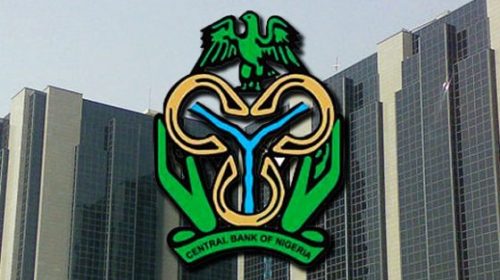NDIC, Others Harp On Banks, Fintech Collaboration Towards Nigeria’s $1trn Economy

By Ngozi Onyeakusi—For Nigeria to achieve the $1trillion Gross Domestic Product (GDP) by 2026, the Nigeria Deposit Insurance Corporation (NDIC), among other stakeholders, have emphasized on the need for banks and Fintech companies to collaborate and drive the real sector growth.
Delivering a keynote address at the 2024 annual conference of the Finance Correspondents Association of Nigeria (FICAN) in Lagos over the weekend with the theme, “Nigeria’s Journey Towards $1 trillion Economy: Impact of Banks’ Re-capitalisation, Opportunities for Fintechs and Real Sector” the Managing Director/Chief Executive, NDIC, Mr. Bello Hassan stated that the current recapitalization initiative of the Central Bank of Nigeria (CBN) must be effectively implemented. According to him, this is necessary towards enhancing the resilience, solvency and capacity of Nigerian banks to absorb shocks and continue to support economic development of the nation by efficiently performing their function as the fulcrum of financial intermediation.
He noted the role of strong and well capitalized banks in supporting the current administration’s bold vision of growing Nigeria’s economy to a $1 trillion must be appreciated by the relevant players in the financial sector.
“The opportunities and potentials for growth of the real sector depend, among others, on the availability and affordability of financing the economy. To achieve the desired level of financing required by the real sector, the window offered by banks in partnership with Fintechs, must be adequately harnessed,” he said.
He, however, stressed on the need for supervisors to understand the interconnection among the various financial services providers and how their policies and actions can affect the efficiency and optimality of the overall financial system.
He noted that many Nigerian banks have focused almost exclusively on large corporations, underserving small and medium enterprises as well as the financially excluded active poor unlike the Fintechs that have the potential of closing this gap through deployment of innovative financial services, using new technology and reduction of bottlenecks associated with traditional financial institutions.
“Notwithstanding the opportunities for growth and the benefit that the system stands to gain through the exploration of Fintechs in the financial services ecosystem, we must, as stakeholders, be conscious of the additional risks and complexities that the system may be further exposed, particularly in the area of privacy, personal information, customer protection, transparency, and cyber-security.
“This no doubt has made regulatory oversight increasingly more complex. Financial regulators must evaluate existing rules and consider adoption of new regulations to better address the opportunities and challenges presented by these new technologies,” Hassan said.
On the role of stakeholders, he emphasized that the vision of growing Nigeria’s economy initiated by President Bola Tinubu, is the starting point for the national policy rethink, stakeholder engagement and realignments of efforts and policies toward achieving the objective.
He stated that the CBN and NDIC have collectively through their respective mandates repositioned the banking industry to better serve its intermediation role for the benefits of real sector and in fact all other sectors of the economy.
He said the CBN foreign exchange rate unification and banks recapitalization are some of the key initiatives necessary for propelling national economic growth.
Hassan highlighted that the foreign exchange rate unification policy has the potential for promoting foreign direct investment, foreign portfolio inflows, increased investor confidence, reduction of budget deficit, and improved sovereign credit ratings.
“The objective of the CBN and NDIC is to promote safe, sound and stable banking system that is capable of providing the required financing to our productive sectors of the economy. This is crucial in Nigeria’s journey towards the $1 trillion economy that we all aspire to attain,” he added.
While giving his guest speaker address, the Group Managing Director, United Bank for Africa Plc (UBA), Mr. Oliver Alawuba said Nigeria’s journey to a $1 trillion economy is not just a vision but also a shared responsibility.
Alawuba, who was represented by the Executive Director, Finance and Risk Management, UBA, Ugo Nwaghodoh, however, called on the banking sector, fintech innovators, the real sector, and regulatory institutions to work hand-in-hand to drive this transformation.
“We are on the cusp of a new era, one that will be defined by innovation, resilience, and sustainable growth. Let us take this opportunity to collectively shape the future, ensuring that the Nigeria of tomorrow is one where prosperity is shared, opportunities abound, and our economy stands as a beacon of growth on the global stage,” he said.
According to him, Nigeria has the largest fintech market in Africa, populated by a rapidly growing number of start-ups offering solutions that address the inefficiencies of the traditional banking sector.
“Fintech has already transformed how Nigerians access financial services – from mobile payments to lending platforms, the scope is vast.
“As we march towards a $1 trillion economy, the Fintech Sector is poised to play a crucial role in expanding financial access, driving innovation, and stimulating competition within the broader financial system,” he said.
In his welcome address, the National Chairman, FICAN, Mr. Chima Nwokoji, however, raised concerns on fluctuations in exchange rates, and regulatory pronouncements of which one is the exclusion of retained earnings from capital calculations.
He explained further that, “There is evidence of global best practices that show that a robust banking system is vital for economic growth. Singapore’s banking sector, for instance, has facilitated its rise as a financial hub and supporting economic growth.”
He highlighted that the banking sector recapitalisation would increase lending to MSMEs, driving entrepreneurship. According to him, this will boost job creation and support fintechs through strategic partnerships. This, in turn, will improve financial inclusion; enhance credit facilities for agriculture, manufacturing, and infrastructure development and boost investor confidence, thereby attracting foreign direct investment.







Leave a Reply